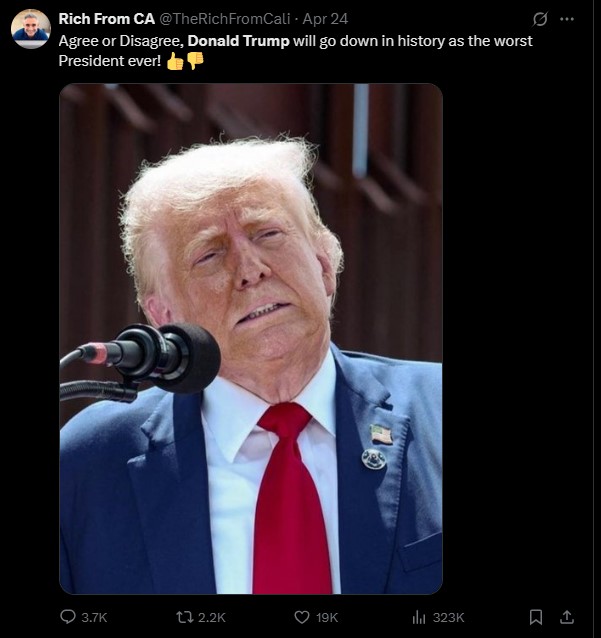As President Donald Trump embarks on his second term, a contentious debate resurfaces: Will he be remembered as the worst president in American history? Recent evaluations by historians and political analysts suggest that this may indeed be the case.
Scholarly Assessments
In a 2024 survey conducted by the American Political Science Association, 154 presidential historians ranked Trump 45th out of 45 presidents, placing him at the bottom of the list. This assessment considered factors such as administrative skills, moral authority, and economic management . Similarly, the Siena College Research Institute’s 2022 survey positioned Trump among the three worst presidents in U.S. history.
Public Opinion
Public sentiment mirrors these scholarly critiques. A recent ABC News/Washington Post/Ipsos poll revealed that Trump holds the lowest 100-day job approval rating of any president in the past 80 years, with only 41% of Americans approving of his performance . This marks a significant decline from previous administrations and underscores widespread dissatisfaction with his leadership.
Policy and Governance
Critics argue that Trump’s approach to governance has been marked by authoritarian tendencies and divisive policies. In his second term, he has issued over 130 executive orders and declared multiple national emergencies, actions that some view as undermining democratic norms . His administration’s handling of immigration, environmental regulations, and foreign relations has also drawn significant criticism.
Supporters’ Perspective
Despite these criticisms, Trump’s supporters highlight his efforts to implement conservative policies, reduce federal regulations, and prioritize American interests in foreign policy. They argue that his unorthodox approach challenges the status quo and resonates with a significant portion of the electorate.
Conclusion
While opinions on Trump’s presidency remain deeply polarized, the convergence of scholarly assessments and public opinion polls suggests a growing consensus regarding his place in history. As debates continue, the long-term impact of his leadership on American democracy and global standing remains a subject of intense scrutiny.
